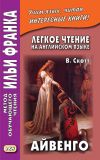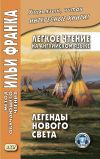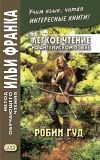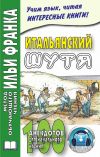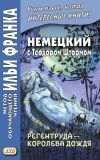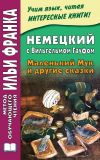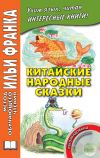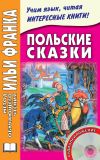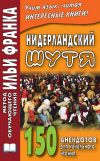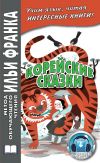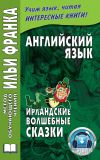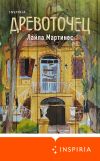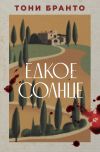Текст книги "Легкое чтение на английском языке. Сказки Нового Света / Cyrus Mac Millan. Indian Wonder Tales"
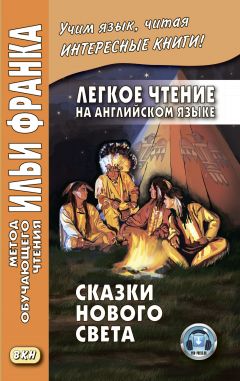
Автор книги: Народное творчесто
Жанр: Иностранные языки, Наука и Образование
Возрастные ограничения: +12
сообщить о неприемлемом содержимом
Текущая страница: 4 (всего у книги 14 страниц) [доступный отрывок для чтения: 5 страниц]
The partridge and his drum
(Куропатка и его барабан)
IN far back times when only Indians dwelt in Canada (в далекие времена, когда в Канаде жили только индейцы; to dwell – жить, обитать, находиться, пребывать), Glooskap, who was Lord and Master of the tribes (Глускап, который был Богом и Повелителем их племен), chose Partridge from among all his creatures to be the boat-builder for the birds of the sea (из всех своих созданий выбрал Куропатку, чтобы тот строил лодки: «чтобы быть строителем лодок» для морских птиц). Partridge was then a very wonderful bird (в те времена Куропатка был очень удивительной птицей), very different from what he is today (совсем непохожей на то как, она: «он» выглядит сегодня; different – другой, иной). He dwelt always along the ocean shore (он всегда селился по океанскому побережью), on the banks of great rivers (на берегах больших рек), and he could swim like a duck or a gull (и мог плавать, как утка или чайка).
master ['mɑ:stǝ], partridge ['pɑ:trɪʤ], different ['dɪf(ǝ)r(ǝ)nt], ocean ['ǝʋʃ(ǝ)n], shore [ʃɔ:]
IN far back times when only Indians dwelt in Canada, Glooskap, who was Lord and Master of the tribes, chose Partridge from among all his creatures to be the boat-builder for the birds of the sea. Partridge was then a very wonderful bird, very different from what he is today. He dwelt always along the ocean shore, on the banks of great rivers, and he could swim like a duck or a gull.
He could change his shape to that of a man (он умел принимать обличие человека: «менять свою форму на форму человека»). He knew all the country well (он очень хорошо знал всю страну), and often he wandered far through the woods looking for good trees from which to build his boats (и он часто бродил по лесу в поисках хороших = подходящих деревьев, из которых /можно/ строить лодки; to look for smth. – искать что-либо). Among all the people he was held in high regard because of his skill (среди всех людей он был очень уважаем за свое умение; among – среди; to hold – держать; to hold in high regard – быть высокого мнения о ком-либо; regard – уважение).
country ['kʌntrɪ], through [θru:], boat [bǝʋt], build [bɪld], because [bɪ'kɒz]
He could change his shape to that of a man. He knew all the country well, and often he wandered far through the woods looking for good trees from which to build his boats. Among all the people he was held in high regard because of his skill.
He was always industrious and always busy (он всегда был прилежным и никогда не отдыхал; to be busy – быть занятым), and at all hours of the day and late into the night (и все время днем и даже поздно ночью: «во все часы дня и поздно в ночь»), he could be heard hammering at his canoes (можно было слышать, как он стучит молотком у своего каноэ: «он мог быть слышим стучащим…»; to hear – слышать), making a sound like a man tapping quickly on a drum (и звук был таким, как будто кто-то быстро стучал по барабану: «делая/производя звук, подобно…»; to tap – хлопать, постукивать). But he lost his reputation through no fault of his own (но он потерял свое доброе имя, хотя и не по своей вине; to lose – терять; reputation – репутация, слава, доброе имя). He no longer builds boats (больше он не строит лодок); the power to make the strange sound of his hammering is all that remains with him of his former greatness (способность издавать странный стучащий звук – это все, что остается от его былого величия; former – бывший, давний).
sound [saʋnd], industrious [ɪn'dʌstrɪǝs], busy ['bɪzɪ], reputation [,repju(:)'teɪʃ(ǝ)n], fault [fɔ:lt], strange [streɪnʤ]
He was always industrious and always busy, and at all hours of the day and late into the night, he could be heard hammering at his canoes, making a sound like a man tapping quickly on a drum. But he lost his reputation through no fault of his own. He no longer builds boats; the power to make the strange sound of his hammering is all that remains with him of his former greatness.
It happened that one very cold day (так случилось, что в один из очень холодных дней) Partridge walked alone over the snow in the deep forest near the shore of a great lake (Куропатка шел один по снегу в чаще леса: «в глубоком лесу» неподалеку от берега большого озера), looking for lumber for his boats (выбирая бревна для своих лодок; to look for smth. – искать что-либо; lumber – строевой лес, бревна). On the bank of a stream he saw four beautiful maidens sitting on the ice braiding their long hair (на берегу ручья он увидел четырех прекрасных девушек, сидящих на льду и заплетающих свои длинные волосы; to see – видеть; braid – шнурок; тесьма; to braid – плести). He knew that they were the nymphs or fairies of the stream (он знал = понял, что это были нимфы или феи этого ручья; to know – знать), and he watched them from behind a tree (и наблюдал за ними из-за дерева).
lumber ['lʌmbǝ], maiden ['meɪd(ǝ)n], nymph [nɪmf], fairy ['feǝrɪ]
It happened that one very cold day Partridge walked alone over the snow in the deep forest near the shore of a great lake, looking for lumber for his boats. On the bank of a stream he saw four beautiful maidens sitting on the ice braiding their long hair. He knew that they were the nymphs or fairies of the stream, and he watched them from behind a tree.
He had long desired to win a stream fairy for his bride (у него уже давно была страстная мечта, чтобы фея ручья стала его невестой; to desire – испытывать сильное желание, жаждать, мечтать, очень хотеть; to win – достичь, заслужить, снискать, добиться, завоевать), but up to that time he had found it an impossible task (но вплоть до этого времени он считал это невыполнимой задачей; to find – находить; impossible – невозможный, невыполнимый, неосуществимый), for the fairies were very timid (потому что /эти/ феи были очень робкие). As he watched them now, he thought to himself (наблюдая за ними в этот раз, он подумал про себя; to think – думать), “Perhaps I can catch one of them and carry her off (может быть, я смогу поймать одну из них и унести /с собой/; perhaps – возможно).”
desire [dɪ'zaɪǝ], task [tɑ:sk], thought [θɔ:t], perhaps [pǝ'hæps]
He had long desired to win a stream fairy for his bride, but up to that time he had found it an impossible task, for the fairies were very desired. As he watched them now, he thought to himself, “Perhaps I can catch one of them and carry her off.”
So he stealthily slipped from behind the tree and crept along towards the bank (и вот он украдкой выбрался из-за дерева и подкрался к берегу; to slip – скользить, плавно передвигаться; to creep – ползать; красться, подкрадываться). But the water-nymphs, who could hear the smallest sound, heard his footsteps (но водяные нимфы, которые могли улавливать тончайшие звуки, услышали его шаги; small – маленький, мелкий, небольшой), and looking around, they spied him among the trees (и, оглянувшись, они заметили его среди деревьев; to spy – шпионить, следить; заметить, найти, обнаружить, разглядеть). “Oh, oh!” they all cried (о, о! закричали они разом), and at once they all dropped into the icy water and disappeared (и тут же бросились все в ледяную воду и исчезли; to drop – капать; ронять; бросать/ся/ вниз).
stealthily ['stelθɪlɪ], hear [hɪǝ], spy [spaɪ], icy ['aɪsɪ], disappear [,dɪsǝ'pɪǝ]
So he stealthily slipped from behind the tree and crept along towards the bank. But the water-nymphs, who could hear the smallest sound, heard his footsteps, and looking around, they spied him among the trees. “Oh, oh!” they all cried, and at once they all dropped into the icy water and disappeared.

Now, Partridge, being then a river-dweller and of very great strength, was a good fisherman (так вот, Куропатка жил тогда у реки: «будучи тогда речным жителем», обладал недюжинной силой и был ловким рыбаком; dweller – житель, обитатель; great – большой, великий). Many a time he had caught the slippery harbour seals (много раз он ловил скользких котиков; to catch – ловить; harbour seal – безухий котик; harbour – гавань), and often he had dined plentifully on their meat (и часто обильно обедал их мясом; plenty – обилие; множество). He hit upon a crafty trick by which to seize a nymph (он задумал коварную хитрость, при помощи которой /можно было бы/ поймать нимфу; to hit – ударять; to hit on/upon – набрести /нежиданно/ на мысль; crafty – коварный, лукавый, хитроумный, хитрый; craft – ловкость, умение, искусство; сноровка; обман, хитрость). He cut a number of branches from a spruce tree (он срезал некоторое количество хвойных веток; a number of – некоторое количество, несколько; number – количество; цифра; tree – дерево; spruce – ель; хвойное дерево), and sticking them upright in the snow on the shore he hid behind them (и, воткнув их вертикально в снег на берегу, спрятался за ними; to hide – прятать/ся/), and waited for the nymphs to appear again (и стал ждать, пока нимфы не появятся снова).
river-dweller [,rɪvǝ'dwelǝ], harbour ['hɑ:bǝ], branch [brɑ:ntʃ], appear [ǝ'pɪǝ]
Now, Partridge, being then a river-dweller and of very great strength, was a good fisherman. Many a time he had caught the slippery harbour seals, and often he had dined plentifully on their meat. He hit upon a crafty trick by which to seize a nymph. He cut a number of branches from a spruce tree, and sticking them upright in the snow on the shore he hid behind them, and waited for the nymphs to appear again.
Sure enough they soon came back and sat again upon the ice braiding their long hair (и действительно, вскоре они вернулись и опять уселись на льду, заплетая свои длинные волосы; to sit – сидеть, садиться). Partridge put his head over the boughs to take a peep at them (Куропатка высунул голову над сучьями, чтобы взглянуть на них; peep – беглый взгляд; тайный взгляд, взгляд украдкой; to peep – смотреть сквозь маленькое отверстие; подглядывать) so that he might pick out the most beautiful (так, чтобы он мог выбрать самую красивую), but again they saw him (но опять они увидели его), and with the same frightened cry, “Oh, oh!” they dropped quickly into the sea (и с тем же испуганным криком: «О! О!» – быстро попрыгали в море). After them went Partridge (Куропатка ринулся за ними; to go – идти, двигаться), although he knew that the water was very cold (хотя он знал, что вода очень холодная). He caught one, but she slipped from his arms (он поймал одну, но она выскользнула из его рук; to catch – ловить), and when he came to the surface, he had only her hair ribbon in his hand (и когда он вынырнул на поверхность, в его руке была лишь лента из ее волос).
bough [baʋ], might [maɪt], although [ɔ:l'ðǝʋ], surface ['sɜ:fɪs], ribbon ['rɪbǝn]
Sure enough they soon came back and sat again upon the ice braiding their long hair. Partridge put his head over the boughs to take a peep at them so that he might pick out the most beautiful, but again they saw him, and with the same frightened cry, “Oh, oh!” they dropped quickly into the sea. After them went Partridge, although he knew that the water was very cold. He caught one, but she slipped from his arms, and when he came to the surface, he had only her hair ribbon in his hand.
Now, in those old days water-nymphs in this part of the sea could not live long without their hair ribbons (так вот, в те стародавние дни водяные нимфы в тех краях у моря не могли жить без этих лент для волос), for the ribbons contained always much of their magic power (потому что в этих лентах всегда заключалась большая часть: «много» их волшебной силы). Partridge knew this (Куропатка знал это), and he knew too that sooner or later the nymph would wander about on land looking for her lost charm (и еще он знал, что рано или поздно: «раньше или позже» нимфа выйдет на берег, чтобы найти потерянный амулет; to wander about – бродить, странствовать, скитаться; about – вокруг; повсюду). So he put the ribbon in his pocket (поэтому он положил ленту в карман) and with a light heart he went about his business of seeking wood for his boats (и с легким сердцем пошел по своим делам в поисках древесины для своих лодок; business – дело, занятие; работа).
contain [kǝn'teɪn], magic ['mæʤɪk], power ['paʋǝ], heart [hɑ:t], business ['bɪznǝs]
Now, in those old days water-nymphs in this part of the sea could not live long without their hair ribbons, for the ribbons contained always much of their magic power. Partridge knew this, and he knew too that sooner or later the nymph would wander about on land looking for her lost charm. So he put the ribbon in his pocket and with a light heart he went about his business of seeking wood for his boats.
That night when he went back to his tent (той же ночью, когда он вернулся в свой вигвам) he hid the ribbon not far from his hand in hope of the fairy's visit (он спрятал ленту под рукой: «недалеко от его руки» в надежде на приход: «посещение» нимфы; to hide – прятать); then, pretending to sleep, he closed his eyes and waited (затем, притворившись, что спит, он закрыл глаза и стал ждать). He had not been there long (ему не пришлось долго ждать: «он был там недолго») when there came in very softly the beautiful water-nymph in search of her lost ribbon (когда в поисках своей потерянной ленты очень тихо вошла прекрасная водяная нимфа; to come in – входить). Now (так вот), when a water-nymph sets foot in the dwelling of man or animal without her hair ribbon (когда водяная нимфа ступает в жилище человека или зверя без ленты в волосах; foot – нога), she is always powerless (она всегда беззащитна; powerless – бессильный; беспомощный; power – сила, мощь).
pretending [prɪ'tendɪŋ], search [sɜ:tʃ], ribbon ['rɪbǝn]
That night when he went back to his tent he hid the ribbon not far from his hand in hope of the fairy's visit; then, pretending to sleep, he closed his eyes and waited. He had not been there long when there came in very softly the beautiful water-nymph in search of her lost ribbon. Now, when a water-nymph sets foot in the dwelling of man or animal without her hair ribbon, she is always powerless.
This Partridge knew well (это Куропатка хорошо знал). He sprang quickly from his couch (он быстро спрыгнул с кровати; to spring – прыгать, скакать; couch – диван, софа, кушетка), caught her with little trouble (без особого труда: «с малым трудом» поймал ее; to catch – ловить; trouble – беспокойство, волнение, тревога; хлопоты, труд), and easily persuaded her to remain with him as his wife (и легко уговорил ее остаться с ним и стать его женой: «остаться с ним как его жена/в качестве его жены»; to persuade – убеждать). This was against Glooskap's orders (это расходилось с заповедями Глускапа: «было против распоряжения/предписания Глускапа»; order – порядок, система, заведенный порядок; orders – приказание, распоряжение; инструкция, предписание), for Glooskap knew that if one of his people married a water-nymph no good could come of it (потому что Глускап знал, что если один из его людей женится на водяной нимфе, ничего хорошего из этого не выйдет). But Glooskap said nothing (но Глускап промолчал: «ничего не сказал»).
couch [kaʋtʃ], persuade [pǝ'sweɪd], against [ǝ'ɡenst], nothing ['nʌθɪŋ]
This Partridge knew well. He sprang quickly from his couch, caught her with little trouble, and easily persuaded her to remain with him as his wife. This was against Glooskap's orders, for Glooskap knew that if one of his people married a water-nymph no good could come of it. But Glooskap said nothing.
Partridge and his nymph-wife lived happily enough for a time (какое-то время Куропатка и его жена жили довольно счастливо). But he always feared for her safety (но он всегда опасался, не угрожает ли ей опасность: «опасался за ее безопасность»; safety – безопасность; safe – безопасный; надежный) when he went far away looking for lumber for his boats (когда уходил далеко в поисках древесины для своих лодок), for many evil creatures were always about in the forest (потому что в лесу всегда было много злых тварей).
feared [fɪǝd], safety ['seɪftɪ], evil ['i:v(ǝ)l], creature ['kri:tʃǝ]
Partridge and his nymph-wife lived happily enough for a time. But he always feared for her safety when he went far away looking for lumber for his boats, for many evil creatures were always about in the forest.
And he always said to her before he went away (и всякий раз перед тем, как уйти, он говорил ей), “Keep the doors tightly barred while I am gone (пока меня нет, запирай двери крепко: «держи/сохраняй двери крепко запертыми»; to keep – держать; bar – брусок, блок, кусок; полено, болванка; to bar – запирать на засов), for many wicked people and robbers prowl through the woods (потому что много злых людей и грабителей рыскает по лесам; to prowl – красться, бродить, скитаться /в поисках чего-либо/; рыскать в поисках добычи /часто – с целью грабежа/), and they will try to enter the tent perhaps to kill you (и они будут пытаться войти в вигвам и, возможно, убить тебя).” And she always promised to be on her guard (и она всегда обещала быть осторожной; guard – охрана, защита; to be on one's guard – быть начеку).
tightly ['taɪtlɪ], bar [bɑ:], prowl [praʋl], guard [ɡɑ:d]
And he always said to her before he went away, “Keep the doors tightly barred while I am gone, for many wicked people and robbers prowl through the woods, and they will try to enter the tent perhaps to kill you.” And she always promised to be on her guard.
One day Partridge went far away in search of lumber for a new fleet of boats he was then building (однажды в поисках леса для своего нового флота лодок, который он тогда строил, Куропатка зашел очень далеко). In the afternoon he came to a grove of wonderful cedar trees (в полдень он пришел в рощу красивых кедровых деревьев; grove – роща, лесок). He wished to examine it carefully (он хотел внимательно осмотреть ее; to examine – рассматривать, осматривать, исследовать, изучать, проверять), and as night was coming on – for winter nights come early in the Canadian woods (а так как приближалась ночь – зимой в канадских лесах темнеет рано: «потому что зимние ночи приходят рано в канадских лесах») – he decided to stay there until the next day (он решил остаться там до следующего дня). So as the day went down (поэтому, когда день клонился к закату; to go down – спускаться), he made a bed of boughs and went to sleep (он сделал себе постель из сучьев и уснул; to go to sleep – засыпать). He had no fear for his wife's safety (у него не было страха за безопасность жены), for she had promised to keep the doors barred (потому что она пообещала держать двери запертыми).
search [sɜ:tʃ], cedar ['si:dǝ], examine [ɪɡ'zæmɪn], bough [baʋ], door [dɔ:]
One day Partridge went far away in search of lumber for a new fleet of boats he was then building. In the afternoon he came to a grove of wonderful cedar trees. He wished to examine it carefully, and as night was coming on – for winter nights come early in the Canadian woods – he decided to stay there until the next day. So as the day went down, he made a bed of boughs and went to sleep. He had no fear for his wife's safety, for she had promised to keep the doors barred.
Meanwhile, his wife waited at home for his coming (тем временем его жена ждала дома его возвращения). When the stars came out (когда зажглись звезды; to come out – выходить, появляться), she knew that he would not come home that night (она уже знала, что он не придет домой этой ночью), and being sleepy she went to bed (и, чувствуя, что засыпает: «будучи сонной», легла в постель), first seeing that the doors were securely fastened (посмотрев сначала, надежно ли закрыты все двери; to see – видеть, смотреть; проследить, позаботиться; to fasten – прикреплять, привязывать; связывать; запирать /дверь, окна и т. п. на защелку, засов и т. п./). She felt very lonely all by herself in the big tent (она чувствовала себя очень одиноко, /будучи/ совершенно одна в большом вигваме; to feel – чувствовать), for Partridge, because of the troublesome noise of his boat-building, dwelt a good distance away from his neighbours (потому что Куропатка жил довольно далеко от своих соседей, чтобы не беспокоить их шумом строительства лодок: «из-за беспокоящего шума своего строительства лодок»; troublesome – причиняющий беспокойство, трудный, беспокойный; trouble – беспокойство; distance – расстояние).
meanwhile [,mi:n'waɪl], knew [nju:; nu:], securely [sɪ'kjʋǝlɪ], neighbour ['neɪbǝ]
Meanwhile, his wife waited at home for his coming. When the stars came out, she knew that he would not come home that night, and being sleepy she went to bed, first seeing that the doors were securely fastened. She felt very lonely all by herself in the big tent, for Partridge, because of the troublesome noise of his boat-building, dwelt a good distance away from his neighbours.
At midnight she was awakened by a loud knocking at the door (в полночь она была разбужена громким стуком в дверь). “Open the door (открывай дверь),” said a voice outside (сказал голос снаружи); “I am cold and hungry and I have come far (я замерз и голоден, и пришел издалека).” But mindful of the warning of Partridge (но, помня о предупреждении Куропатки; mindful – помнящий; mind – разум; память), the nymph-wife paid no heed to the call (жена-нимфа никак не ответила на это: «не обратила внимание на этот призыв»; to pay heed to smth. – обращать внимание на что-либо). Now, the voice was that of a wicked sorcerer (так вот, это был голос злого колдуна) who always prowled through the forest (который постоянно рыскал по лесу; to prowl – красться, бродить, рыскать в поисках добычи), and who knew that Partridge was away (и который знал, что Куропатки нет дома; to be away – отсутствовать: «быть прочь»).
midnight ['mɪdnaɪt], mindful ['maɪndf(ǝ)l], sorcerer ['sɔ:s(ǝ)rǝ]
At midnight she was awakened by a loud knocking at the door. “Open the door,” said a voice outside; “I am cold and hungry and I have come far.” But mindful of the warning of Partridge, the nymph-wife paid no heed to the call. Now, the voice was that of a wicked sorcerer who always prowled through the forest, and who knew that Partridge was away.
He wished to kill and eat the nymph (он хотел убить и съесть нимфу). He was a very clever and sly fellow (он был очень умным и коварным человеком; sly – хитрый, коварный; fellow – парень), and he could imitate the voices of all men and animals (и мог подражать голосам всех людей и животных) to lure people to their death (чтобы заманивать людей в смертельные ловушки: «в их смерть»). For a long time after his first call he was silent (после того, как он позвал в первый раз: «после своего первого зова», он долго молчал: «был безмолвным»). Then he knocked again (затем постучался снова) and imitated the voice of the nymph's brothers and sisters, and said (и подражал голосам братьев и сестер нимфы, и сказал), “Oh, sister, we have followed you for a long time until at last we have found you (о сестричка, мы шли за тобой так долго, пока наконец не нашли тебя; to follow smb. – следовать за кем-либо; to find); open the door to us (открой нам дверь).”
sly [slaɪ], fellow ['felǝʋ], knock [nɒk], imitate ['ɪmɪteɪt], follow ['fɒlǝʋ]
He wished to kill and eat the nymph. He was a very clever and sly fellow, and he could imitate the voices of all men and animals to lure people to their death. For a long time after his first call he was silent. Then he knocked again and imitated the voice of the nymph's brothers and sisters, and said, “Oh, sister, we have followed you for a long time until at last we have found you; open the door to us.”
But still the nymph was suspicious and refused to unbar the door (но нимфа была все еще недоверчива и отказалась отпереть дверь; suspicious – подозрительный, недоверчивый; suspicion – подозрение). Then the sorcerer imitated her father's voice and called her “daughter” (тогда колдун заговорил голосом ее отца и назвал ее «дочкой»). But still she would not let him in (но все же она не разрешила ему войти). At last he talked like her mother, and said (наконец он заговорил с ней, как ее мать, и сказал), “Oh, daughter, open the door (о, доченька, открой дверь); I have come far in search of you (я пришла издалека, чтобы найти тебя: «в поиске тебя»), and I am very cold and hungry and tired (и я очень замерзла, голодна и устала).”
suspicious [sǝ'spɪʃ(ǝ)s], daughter ['dɔ:tǝ], search [sɜ:tʃ], tired [taɪǝd]
But still the nymph was suspicious and refused to unbar the door. Then the sorcerer imitated her father's voice and called her “daughter.” But still she would not let him in. At last he talked like her mother, and said, “Oh, daughter, open the door; I have come far in search of you, and I am very cold and hungry and tired.”
The nymph-wife was deceived at last (в конце концов нимфа-жена была обманута), for she thought the voice was that of her old mother from the stream (потому что она подумала, что это голос ее старенькой мамы из ручья). Hastily she opened the door (она поспешно открыла дверь; haste – спешка). At once the wicked sorcerer – the evil spirit of the woods – pounced upon her (тут же злой колдун – злой лесной дух – набросился на нее; to pounce – набрасываться; внезапно атаковать; pounce – коготь /ястреба и т. п./; to pounce – хватать когтями), and killing her at a blow (и, убив ее одним ударом), he greedily devoured her like a wolf (он с жадностью съел ее, как волк; greed – жадность; to devour – жадно есть; глотать, давясь), until not a bone was left (пока не осталось ни одной косточки; to leave – оставлять).
deceive [dɪ'si:v], thought [θɔ:t], pounce [paʋns], devour [dɪ'vaʋǝ], wolf [wʋlf]
The nymph-wife was deceived at last, for she thought the voice was that of her old mother from the stream. Hastily she opened the door. At once the wicked sorcerer – the evil spirit of the woods – pounced upon her, and killing her at a blow, he greedily devoured her like a wolf, until not a bone was left.
The next morning Partridge came home (на следующее утро Куропатка вернулся домой). He found the door of his house open and his wife absent (он обнаружил, что дверь дома открыта, а жена исчезла; absent – отсутствующий). He wondered greatly, for he remembered her promise (он сильно удивился, потому что помнил ее обещание), and he could not believe that she had been killed (и не мог поверить, что она убита). So he resolved to use his magic power to learn where she had gone (поэтому он решил применить свою волшебную силу, чтобы узнать, куда она пропала).
wonder ['wʌndǝ], greatly ['ɡreɪtlɪ], promise ['prɒmɪs], believe [bɪ'li:v], learn [lɜ:n]
The next morning Partridge came home. He found the door of his house open and his wife absent. He wondered greatly, for he remembered her promise, and he could not believe that she had been killed. So he resolved to use his magic power to learn where she had gone.
He took his magic wooden plate and filled it with water (он взял волшебную деревянную тарелку и наполнил ее водой; wood – древесина), and placed it in a corner of the tent while he slept (и поставил в угол палатки, а сам лег спать: «в то время как он спал»; to sleep – спать). When he awoke, the dish was full not of water but of blood (когда он проснулся, в тарелке была не вода, а кровь; to awake – просыпаться; full – полный, наполненный целиком), and he knew from this sign that his wife had been killed by the sorcerer (и по этому знаку он понял, что его жена была убита колдуном; to know – знать, узнавать, понимать).
awoke [ǝ'wǝʋk], blood [blʌd], knew [nju:], sign [saɪn]
He took his magic wooden plate and filled it with water, and placed it in a corner of the tent while he slept. When he awoke, the dish was full not of water but of blood, and he knew from this sign that his wife had been killed by the sorcerer.
He determined to punish her slayer (он решил наказать ее убийцу; to determine – решать, разрешать, определять, устанавливать; to slay – убивать, лишать жизни), and taking his axe and his bow and arrows and his magic charm (и, взяв свой топор, лук, стрелы и волшебный амулет; charm – талисман, амулет; очарование, обаяние), he left his work and set out in pursuit of the sorcerer (он оставил свою работу и отправился на поиски колдуна; to leave – оставлять, покидать; pursuit – преследование, гонение, погоня). He knew that the sorcerers travelled in pairs (он знал, что колдуны путешествуют вдвоем: «парами»); he knew, too, that they had many tricks by which to escape punishment (он также знал, что у них много уловок, с помощью которых они уходят от наказания; to escape – избежать /опасности и т. п./, спастись, отделаться), and that they could take on various shapes (и что они могут принимать разные обличия; shape – вид, образ, форма, очертание). So he went along cautiously (так что он шел с большой осторожностью: «осторожно»; caution – осторожность).
determine [dɪ'tɜ:mɪn], axe [æks], pursuit [pǝ'sju:t], cautiously ['kɔ:ʃǝslɪ]
He determined to punish her slayer, and taking his axe and his bow and arrows and his magic charm, he left his work and set out in pursuit of the sorcerer. He knew that the sorcerers travelled in pairs; he knew, too, that they had many tricks by which to escape punishment, and that they could take on various shapes. So he went along cautiously.
By evening he reached a great lone land in the far north (к вечеру он добрался до большой уединенной земли на далеком севере) where he thought he found traces of two of the evil ones (где, как он думал, он нашел следы двух злодеев; to find – находить). He came to a large cave which he entered (он подошел к большой пещере и вошел в нее), intending to pass the night there (собираясь провести там ночь; to intend – намереваться, планировать). From a huge rock at the side of the cave a man's foot was sticking (из-за огромного камня у края пещеры торчала нога человека; rock – скала; обломок скалы; /большой/ камень).
north [nɔ:θ], found [faʋnd], night [naɪt], huge [hju:ʤ]
By evening he reached a great lone land in the far north where he thought he found traces of two of the evil ones. He came to a large cave which he entered, intending to pass the night there. From a huge rock at the side of the cave a man's foot was sticking.
He knew that here was one of the sorcerers (он знал, что здесь был один из колдунов) who had gone into the rock to sleep as was their custom (который по привычке: «как был их обычай» забрался в пещеру, чтобы поспать; rock – камень, скала; custom – обычай, традиция), leaving his foot sticking out (высунув свою ногу наружу; to leave – оставлять; to stick out – выставлять наружу) so that his comrade could pull him out when he had slept long enough (так, чтобы его товарищ мог вытащить его, если он заспится: «проспит довольно долго»). Partridge quickly cut off the foot close to the rock (Куропатка быстро отрезал ступню по краю камня/скалы: «близко к скале»), and there the sorcerer was left closed up forever in the stone (и так колдун остался замурованным: «был оставлен закрытым» навсегда в камне).
Правообладателям!
Данное произведение размещено по согласованию с ООО "ЛитРес" (20% исходного текста). Если размещение книги нарушает чьи-либо права, то сообщите об этом.Читателям!
Оплатили, но не знаете что делать дальше?